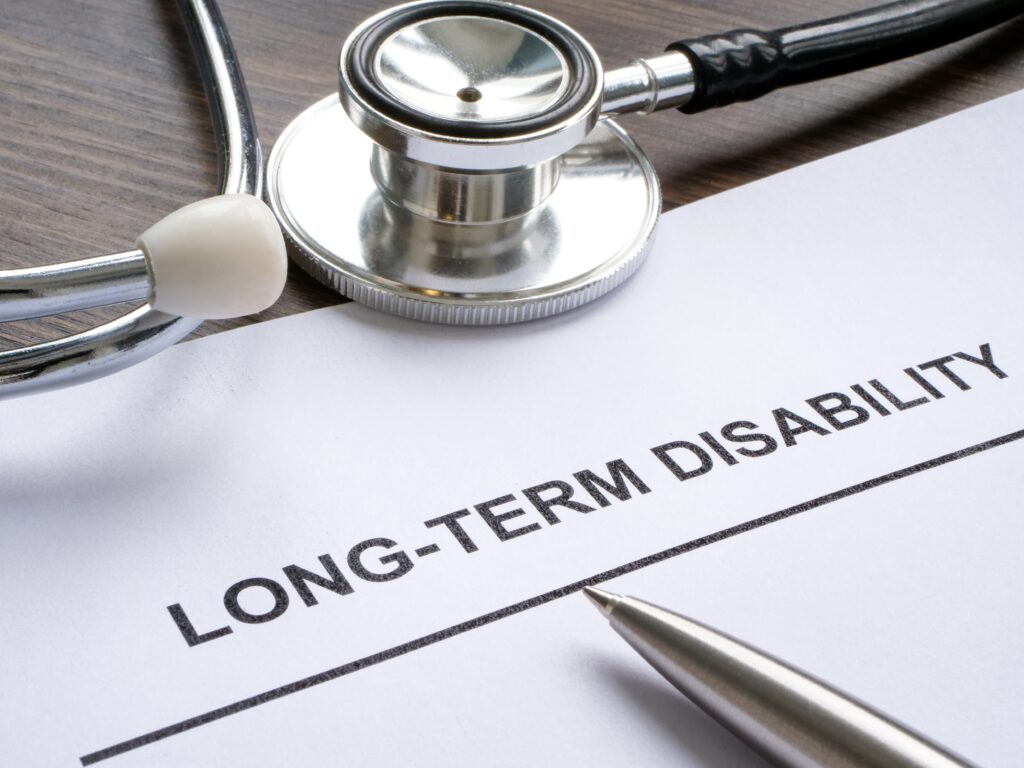A cancer diagnosis is a serious, life-altering moment. Given the impact it can have on one’s life and ability to work and earn income, it’s only natural that cancer patients would consider pursuing long-term disability — and they can. If you’re interested, here’s an overview of long-term disability, why cancer can qualify, and some caveats.
First, a Brief Overview of Long-Term Disability
Long-term disability benefits provide financial support to individuals who are unable to work for an extended period due to severe medical conditions. This type of disability insurance benefits helps cover a portion of lost income to assist those facing debilitating illnesses or injuries.
Whether provided by employers or purchased individually, long-term disability benefits can last for several years or until retirement age, depending on the policy. The Social Security Administration also offers programs like Social Security Disability Income for those who qualify to ensure that individuals with long-term disabilities receive the necessary financial support to manage their daily living expenses.
So, Can You Get Long-Term Disability for Cancer?
Due to the impact of a cancer diagnosis and the impact it can have on one’s life, it is only natural that cancer can qualify individuals for long-term disability benefits. However, cancer diagnoses alone do not automatically guarantee benefits. In many cases, the severity and nature of cancer symptoms and treatments play a crucial role in determining eligibility.
Insurance companies assess each disability claim based on factors such as the type of cancer, treatment plans like gene therapy or proton therapy, and the patient’s overall health and work history. Consequently, individuals with lung cancer or other specific types of cancers may have stronger claims if they experience severe symptoms that inhibit their ability to work.
How to Prove LTD for Cancer
Documentation
For a successful LTD claim, you’ll need to provide direct evidence of your cancer diagnosis. MRI scans and other forms of objective imaging, bone scans and blood work, testing results, and other kinds of medical documentation can all be used to support your claim.
Disabling Symptoms
Many cancer symptoms can impact one’s ability to work. For example, severe back pain, fatigue, noticeable changes in bowel movement, and more can interfere with your day-to-day activities. Once again, providing hard evidence and documentation of any disabling symptoms is crucial.
Treatment Side Effects
Intensive cancer treatments can cause side effects that may prevent an individual from returning to work. Chemotherapy can cause fatigue, nausea, and other forms of recurring pain, while any surgical procedures can place patients in remission for a time.
To Speak to an Experienced Disability Lawyer, Call Rosen Moss Snyder LLP
If you’re a cancer patient who was denied disability claims by an insurance company, don’t hesitate to call Rosen Moss Snyder LLP. As experienced long-term disability lawyers, we’ll make sure you receive the necessary assistance so that you can obtain the benefits you need. To start speaking with a long-term care lawyer from our firm, schedule a consultation today.

